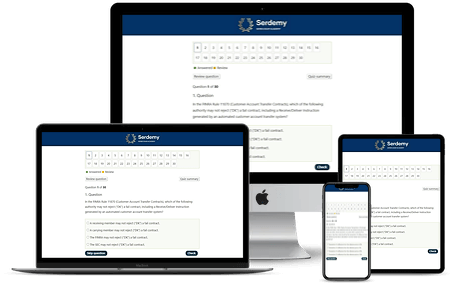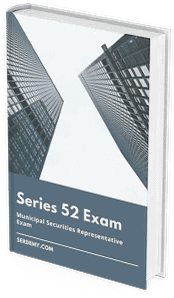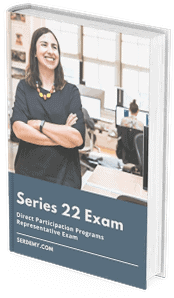Quiz-summary
0 of 30 questions completed
Questions:
- 1
- 2
- 3
- 4
- 5
- 6
- 7
- 8
- 9
- 10
- 11
- 12
- 13
- 14
- 15
- 16
- 17
- 18
- 19
- 20
- 21
- 22
- 23
- 24
- 25
- 26
- 27
- 28
- 29
- 30
Information
Premium Practice Questions
You have already completed the quiz before. Hence you can not start it again.
Quiz is loading...
You must sign in or sign up to start the quiz.
You have to finish following quiz, to start this quiz:
Results
0 of 30 questions answered correctly
Your time:
Time has elapsed
Categories
- Not categorized 0%
- 1
- 2
- 3
- 4
- 5
- 6
- 7
- 8
- 9
- 10
- 11
- 12
- 13
- 14
- 15
- 16
- 17
- 18
- 19
- 20
- 21
- 22
- 23
- 24
- 25
- 26
- 27
- 28
- 29
- 30
- Answered
- Review
-
Question 1 of 30
1. Question
Alistair, a General Securities Principal at Apex Wealth Strategies, is reviewing a Form U4 amendment submitted by Lena, a registered representative. The amendment discloses a new outside business activity described as ‘advising a non-public technology venture on its seed-stage capital acquisition strategy.’ Lena has indicated she will not receive direct compensation but may receive an equity stake if the funding is successful. Alistair notes a single, settled customer complaint on Lena’s record from three years ago, which was below the reporting threshold for a standalone Form 4530 filing but was duly noted on her Form U4. Given these circumstances, what is Alistair’s most critical and immediate supervisory obligation under FINRA rules?
Correct
The core of this scenario revolves around the critical distinction between an Outside Business Activity (OBA) under FINRA Rule 3270 and a Private Securities Transaction (PST) under FINRA Rule 3280. While the representative, Lena, has disclosed the activity as an OBA, the description, ‘advising… on its seed-stage capital acquisition strategy,’ and the potential for compensation via an equity stake, are significant red flags for a PST. A PST involves a securities transaction outside the regular course or scope of an associated person’s employment with a member firm. Under FINRA Rule 3110 (Supervision), a principal has a duty to investigate red flags. The most critical and immediate obligation is not to simply accept the representative’s characterization of the activity but to conduct due diligence to determine its true nature. An OBA requires prior written notice to the firm, which must then assess potential conflicts. However, a PST has a much higher standard. If a representative is to be compensated for a PST, the firm must approve the transaction in writing, record it on its books and records, and supervise the representative’s participation as if the transaction were its own. If the representative is not compensated, the firm must still acknowledge receipt of the written notice and may require the representative to adhere to specified conditions. Given that ‘capital acquisition strategy’ strongly implies the sale of securities, the principal’s primary duty is to investigate whether this is a PST. This investigation must precede any other action. Simply approving it as an OBA would be a supervisory failure if it is, in fact, a PST. Placing the representative on heightened supervision is a potential outcome, but the firm must first understand what activity it is supervising. Terminating the representative without a thorough investigation is premature and could expose the firm to legal risk. Therefore, the foundational supervisory step is a formal inquiry to gather facts and determine the applicability of Rule 3280.
Incorrect
The core of this scenario revolves around the critical distinction between an Outside Business Activity (OBA) under FINRA Rule 3270 and a Private Securities Transaction (PST) under FINRA Rule 3280. While the representative, Lena, has disclosed the activity as an OBA, the description, ‘advising… on its seed-stage capital acquisition strategy,’ and the potential for compensation via an equity stake, are significant red flags for a PST. A PST involves a securities transaction outside the regular course or scope of an associated person’s employment with a member firm. Under FINRA Rule 3110 (Supervision), a principal has a duty to investigate red flags. The most critical and immediate obligation is not to simply accept the representative’s characterization of the activity but to conduct due diligence to determine its true nature. An OBA requires prior written notice to the firm, which must then assess potential conflicts. However, a PST has a much higher standard. If a representative is to be compensated for a PST, the firm must approve the transaction in writing, record it on its books and records, and supervise the representative’s participation as if the transaction were its own. If the representative is not compensated, the firm must still acknowledge receipt of the written notice and may require the representative to adhere to specified conditions. Given that ‘capital acquisition strategy’ strongly implies the sale of securities, the principal’s primary duty is to investigate whether this is a PST. This investigation must precede any other action. Simply approving it as an OBA would be a supervisory failure if it is, in fact, a PST. Placing the representative on heightened supervision is a potential outcome, but the firm must first understand what activity it is supervising. Terminating the representative without a thorough investigation is premature and could expose the firm to legal risk. Therefore, the foundational supervisory step is a formal inquiry to gather facts and determine the applicability of Rule 3280.
-
Question 2 of 30
2. Question
Kenji, a General Securities Principal at Apex Brokerage, is reviewing an updated Form U4 for Anika, a registered representative. The update discloses a new outside business activity: “Consulting for a family tech startup.” During his supervisory due diligence required by FINRA Rule 3110(e), Kenji learns that Anika’s “consulting” involves actively introducing accredited investors from her personal network to her brother’s startup, which is issuing convertible notes to raise capital. Anika is not receiving cash compensation but has been promised a 5% equity stake in the startup if the funding round is successful. The firm has not conducted due diligence on or approved these specific securities for sale. What is Kenji’s most critical and immediate supervisory responsibility under FINRA rules, given these findings?
Correct
This scenario constitutes a private securities transaction (PST) under FINRA Rule 3280, not merely an outside business activity (OBA) under FINRA Rule 3270. The key distinction is the involvement of securities, in this case, the convertible notes of the startup. An associated person engaging in a PST must provide prior written notice to their member firm. The supervisory obligations of the firm then depend on whether the associated person will receive compensation for the transaction. Compensation is broadly defined and includes not just cash but also any economic benefit, such as the 5% equity stake promised to the representative. Because compensation is involved, FINRA Rule 3280 imposes a higher level of supervisory duty. The firm must not only provide written approval for the representative to participate but must also record the transactions on its own books and records. Furthermore, the firm is required to supervise the representative’s participation in the transaction as if the transaction were being executed on behalf of the member firm itself. This includes ensuring suitability and all other relevant sales practice rules are followed. Therefore, the principal’s primary responsibility is to recognize the activity as a compensated PST and apply these specific requirements, which involves a decision to either approve the activity and undertake the required supervision and record-keeping, or to prohibit the representative from participating altogether. Simply acknowledging it as an OBA or focusing on secondary reporting issues would be an insufficient and non-compliant supervisory response.
Incorrect
This scenario constitutes a private securities transaction (PST) under FINRA Rule 3280, not merely an outside business activity (OBA) under FINRA Rule 3270. The key distinction is the involvement of securities, in this case, the convertible notes of the startup. An associated person engaging in a PST must provide prior written notice to their member firm. The supervisory obligations of the firm then depend on whether the associated person will receive compensation for the transaction. Compensation is broadly defined and includes not just cash but also any economic benefit, such as the 5% equity stake promised to the representative. Because compensation is involved, FINRA Rule 3280 imposes a higher level of supervisory duty. The firm must not only provide written approval for the representative to participate but must also record the transactions on its own books and records. Furthermore, the firm is required to supervise the representative’s participation in the transaction as if the transaction were being executed on behalf of the member firm itself. This includes ensuring suitability and all other relevant sales practice rules are followed. Therefore, the principal’s primary responsibility is to recognize the activity as a compensated PST and apply these specific requirements, which involves a decision to either approve the activity and undertake the required supervision and record-keeping, or to prohibit the representative from participating altogether. Simply acknowledging it as an OBA or focusing on secondary reporting issues would be an insufficient and non-compliant supervisory response.
-
Question 3 of 30
3. Question
Alistair, a General Securities Principal at a member firm, is overseeing the resolution of a written customer complaint against a registered representative, Leo. The complaint alleged unsuitable recommendations resulting in a $95,000 loss. After an internal investigation, the firm determined the claim had some merit and negotiated a settlement with the customer for $60,000. The firm properly reported the settlement via a Form U5 amendment. Leo subsequently requests that the firm seek to have the complaint expunged from his CRD record. To comply with FINRA rules, what is the required course of action for the firm to pursue this expungement?
Correct
The correct procedure for seeking expungement of customer dispute information from the Central Registration Depository (CRD) system is strictly governed by FINRA Rule 2080. Even when a firm settles a customer complaint, which is a reportable event on Form U5, the firm or the associated person may still seek to have the complaint details expunged. However, this cannot be done unilaterally. The process requires obtaining a directive from a court of competent jurisdiction. The firm or the associated person must initiate a legal proceeding, typically by filing a claim in arbitration and then seeking to have the arbitration award confirmed by a court. The court must make an affirmative finding that one of the specific grounds for expungement under Rule 2080 has been met: the claim, allegation, or information is factually impossible or clearly erroneous; the registered person was not involved in the alleged investment-related sales practice violation, forgery, theft, misappropriation, or conversion of funds; or the claim, allegation, or information is false. Simply settling the dispute is not one of the grounds for expungement. Furthermore, FINRA must be named as a party in the court proceeding and served with all relevant pleadings and documents, unless FINRA waives this requirement. An internal review or a settlement agreement alone is insufficient to authorize the removal of the information from the CRD.
Incorrect
The correct procedure for seeking expungement of customer dispute information from the Central Registration Depository (CRD) system is strictly governed by FINRA Rule 2080. Even when a firm settles a customer complaint, which is a reportable event on Form U5, the firm or the associated person may still seek to have the complaint details expunged. However, this cannot be done unilaterally. The process requires obtaining a directive from a court of competent jurisdiction. The firm or the associated person must initiate a legal proceeding, typically by filing a claim in arbitration and then seeking to have the arbitration award confirmed by a court. The court must make an affirmative finding that one of the specific grounds for expungement under Rule 2080 has been met: the claim, allegation, or information is factually impossible or clearly erroneous; the registered person was not involved in the alleged investment-related sales practice violation, forgery, theft, misappropriation, or conversion of funds; or the claim, allegation, or information is false. Simply settling the dispute is not one of the grounds for expungement. Furthermore, FINRA must be named as a party in the court proceeding and served with all relevant pleadings and documents, unless FINRA waives this requirement. An internal review or a settlement agreement alone is insufficient to authorize the removal of the information from the CRD.
-
Question 4 of 30
4. Question
Anika, a General Securities Principal at Apex Wealth Partners, is reviewing a Form U4 for a prospective registered representative, Leo. The form discloses that Leo was permitted to resign from his prior firm two years ago following internal allegations of unauthorized trading in client accounts. The matter was settled with the client directly by the prior firm, and no regulatory body ever filed a formal action, meaning it does not constitute a statutory disqualification. Under FINRA Rule 3110(e), what is Anika’s primary supervisory responsibility before making a hiring decision and submitting the Form U4 to FINRA?
Correct
Not applicable. The solution is derived from the direct application of FINRA rules, not a mathematical calculation. FINRA Rule 3110(e) places a specific and affirmative obligation on member firms regarding the hiring process. This rule, titled “Responsibility of Member to Investigate Applicants for Registration,” mandates that each member firm must ascertain by investigation the good character, business reputation, qualifications, and experience of any person before the firm files an application for that person’s registration (Form U4). This is not a passive or clerical task. The investigation must be thorough enough for the firm to be comfortable with the applicant’s integrity. When an applicant’s history includes red flags, such as a resignation following allegations of misconduct or significant customer complaint settlements, the firm’s investigative duty is heightened. The firm cannot simply rely on the applicant’s own statements or the fact that the events did not lead to a statutory disqualification. The principal must take reasonable steps to independently verify the information and understand the full context of the past events. This could involve reviewing settlement documents, contacting previous employers (with the applicant’s consent), and documenting all findings. The purpose of this pre-filing investigation is to enable the firm to make an informed decision about whether to sponsor the individual’s registration and to determine if special supervisory procedures will be necessary if employment is offered. The ultimate responsibility for the conduct of its associated persons rests with the firm, and this due diligence is a critical first step in fulfilling that supervisory obligation.
Incorrect
Not applicable. The solution is derived from the direct application of FINRA rules, not a mathematical calculation. FINRA Rule 3110(e) places a specific and affirmative obligation on member firms regarding the hiring process. This rule, titled “Responsibility of Member to Investigate Applicants for Registration,” mandates that each member firm must ascertain by investigation the good character, business reputation, qualifications, and experience of any person before the firm files an application for that person’s registration (Form U4). This is not a passive or clerical task. The investigation must be thorough enough for the firm to be comfortable with the applicant’s integrity. When an applicant’s history includes red flags, such as a resignation following allegations of misconduct or significant customer complaint settlements, the firm’s investigative duty is heightened. The firm cannot simply rely on the applicant’s own statements or the fact that the events did not lead to a statutory disqualification. The principal must take reasonable steps to independently verify the information and understand the full context of the past events. This could involve reviewing settlement documents, contacting previous employers (with the applicant’s consent), and documenting all findings. The purpose of this pre-filing investigation is to enable the firm to make an informed decision about whether to sponsor the individual’s registration and to determine if special supervisory procedures will be necessary if employment is offered. The ultimate responsibility for the conduct of its associated persons rests with the firm, and this due diligence is a critical first step in fulfilling that supervisory obligation.
-
Question 5 of 30
5. Question
Kai, a General Securities Principal at Apex Securities, is reviewing a disclosure from Anya, a registered representative. Anya has informed the firm that she will be assisting a non-public tech startup, ‘InnovateForward,’ with its initial seed funding round by introducing the startup’s founders to potential accredited investors from her personal network. Anya states she will not receive any direct cash commissions but has been offered a 1% equity stake in InnovateForward, vesting only if the funding target is met. How must Kai, as the supervising principal, treat this activity under FINRA rules?
Correct
This scenario involves the critical distinction between an Outside Business Activity (OBA) under FINRA Rule 3270 and a Private Securities Transaction (PST) under FINRA Rule 3280. An OBA is any activity outside the scope of the relationship with the member firm for which the registered person may receive compensation. A PST is any securities transaction outside the regular course or scope of an associated person’s employment with a member. The key determinant for the required supervisory action is whether the representative will receive compensation for the transaction. In this case, the contingent 1% equity stake is considered compensation, even though it is non-cash and its receipt is not guaranteed. Because compensation is involved, the activity falls under the more stringent requirements of Rule 3280 for compensated PSTs. The rule requires the representative to provide prior written notice to the member firm. If the firm wishes to allow the activity, it cannot simply acknowledge it. The member firm must explicitly approve the representative’s participation in writing. Furthermore, the firm must record the transaction on its own books and records and supervise the representative’s participation as if the transaction were being executed on behalf of the member firm itself. Simply treating it as a standard OBA or acknowledging it without supervision would be a violation.
Incorrect
This scenario involves the critical distinction between an Outside Business Activity (OBA) under FINRA Rule 3270 and a Private Securities Transaction (PST) under FINRA Rule 3280. An OBA is any activity outside the scope of the relationship with the member firm for which the registered person may receive compensation. A PST is any securities transaction outside the regular course or scope of an associated person’s employment with a member. The key determinant for the required supervisory action is whether the representative will receive compensation for the transaction. In this case, the contingent 1% equity stake is considered compensation, even though it is non-cash and its receipt is not guaranteed. Because compensation is involved, the activity falls under the more stringent requirements of Rule 3280 for compensated PSTs. The rule requires the representative to provide prior written notice to the member firm. If the firm wishes to allow the activity, it cannot simply acknowledge it. The member firm must explicitly approve the representative’s participation in writing. Furthermore, the firm must record the transaction on its own books and records and supervise the representative’s participation as if the transaction were being executed on behalf of the member firm itself. Simply treating it as a standard OBA or acknowledging it without supervision would be a violation.
-
Question 6 of 30
6. Question
Anika, a registered representative at Apex Securities, provides written notice to her supervising principal. The notice details her plan to assist her brother’s technology startup, a private entity, in its initial seed funding round. Anika intends to introduce her brother to several accredited investors from her personal network, not from her client list at Apex. In return for her successful introductions leading to investments, the startup will grant her non-qualified stock options. Anika’s notice explicitly states she will not receive any cash, commissions, or finder’s fees. From a supervisory standpoint under FINRA rules, what is the required assessment and action for the principal regarding this proposed activity?
Correct
The proposed activity must be treated as a private securities transaction for which the representative will receive compensation under FINRA Rule 3280. The firm must therefore approve or disapprove the activity. If approved, the firm must record the transaction on its books and records and supervise the representative’s participation as if the transaction were executed on behalf of the firm. This scenario requires a careful distinction between an outside business activity (OBA) under FINRA Rule 3270 and a private securities transaction (PST) under FINRA Rule 3280. An OBA is any activity outside the scope of the relationship with the member firm for which a registered person receives compensation. A PST is any securities transaction outside the regular course or scope of an associated person’s employment with a member firm. The key determinant here is the nature of the activity and the compensation. Since Anika is helping to raise capital by connecting investors to a startup, she is participating in a securities transaction. Furthermore, she is receiving stock options, which FINRA explicitly defines as a form of compensation. When an associated person engages in a PST and receives compensation, the member firm’s supervisory obligations are heightened. The firm cannot simply acknowledge the notice. It must undertake a formal review process to either approve or disapprove the representative’s participation. If the firm approves the activity, it must assume supervisory responsibility for that transaction, including recording it on its own books and records, as if the transaction were being executed through the firm itself. This is a more stringent requirement than for OBAs or for PSTs where no compensation is received.
Incorrect
The proposed activity must be treated as a private securities transaction for which the representative will receive compensation under FINRA Rule 3280. The firm must therefore approve or disapprove the activity. If approved, the firm must record the transaction on its books and records and supervise the representative’s participation as if the transaction were executed on behalf of the firm. This scenario requires a careful distinction between an outside business activity (OBA) under FINRA Rule 3270 and a private securities transaction (PST) under FINRA Rule 3280. An OBA is any activity outside the scope of the relationship with the member firm for which a registered person receives compensation. A PST is any securities transaction outside the regular course or scope of an associated person’s employment with a member firm. The key determinant here is the nature of the activity and the compensation. Since Anika is helping to raise capital by connecting investors to a startup, she is participating in a securities transaction. Furthermore, she is receiving stock options, which FINRA explicitly defines as a form of compensation. When an associated person engages in a PST and receives compensation, the member firm’s supervisory obligations are heightened. The firm cannot simply acknowledge the notice. It must undertake a formal review process to either approve or disapprove the representative’s participation. If the firm approves the activity, it must assume supervisory responsibility for that transaction, including recording it on its own books and records, as if the transaction were being executed through the firm itself. This is a more stringent requirement than for OBAs or for PSTs where no compensation is received.
-
Question 7 of 30
7. Question
Lena, a General Securities Principal at Apex Securities, is reviewing a request from Marco, a registered representative she supervises. A year ago, a customer filed a written complaint alleging an unsuitable recommendation. The firm conducted an internal review, found the recommendation was consistent with the client’s documented aggressive growth objective, and sent a denial letter to the customer. The customer never pursued arbitration. Marco now requests that the complaint be expunged from his CRD record, arguing that the firm’s denial and the customer’s inaction prove the complaint was clearly erroneous. What is the most appropriate supervisory response Lena should provide to Marco?
Correct
The correct supervisory action is determined by applying FINRA Rule 2080, which governs the process for expunging customer dispute information from the Central Registration Depository (CRD) system. The core principle of this rule is that expungement is an extraordinary remedy intended to protect the integrity of the CRD public record. A broker-dealer’s internal investigation and subsequent denial of a customer complaint, while an important part of the firm’s supervisory process under FINRA Rule 3110, does not meet the standard required for expungement. The fact that the customer did not escalate the matter to arbitration is also insufficient grounds. Rule 2080 mandates that a registered person seeking expungement must obtain an order from a court of competent jurisdiction. The typical path to achieve this involves initiating an arbitration proceeding. In this proceeding, an arbitration panel must make an affirmative finding that the subject matter of the complaint is factually impossible or clearly erroneous, that the registered person was not involved in the alleged investment-related sales practice violation, or that the claim, allegation, or information is false. If the panel grants such an award, the registered person must then file a separate legal action in a court to have the arbitration award confirmed. Only upon receiving a confirmed court order can the firm or the registered person request that FINRA expunge the information from the CRD. Therefore, the supervisor’s duty is to inform the representative of this required, multi-step legal process and to ensure the firm does not take any premature or unauthorized action to alter the representative’s record.
Incorrect
The correct supervisory action is determined by applying FINRA Rule 2080, which governs the process for expunging customer dispute information from the Central Registration Depository (CRD) system. The core principle of this rule is that expungement is an extraordinary remedy intended to protect the integrity of the CRD public record. A broker-dealer’s internal investigation and subsequent denial of a customer complaint, while an important part of the firm’s supervisory process under FINRA Rule 3110, does not meet the standard required for expungement. The fact that the customer did not escalate the matter to arbitration is also insufficient grounds. Rule 2080 mandates that a registered person seeking expungement must obtain an order from a court of competent jurisdiction. The typical path to achieve this involves initiating an arbitration proceeding. In this proceeding, an arbitration panel must make an affirmative finding that the subject matter of the complaint is factually impossible or clearly erroneous, that the registered person was not involved in the alleged investment-related sales practice violation, or that the claim, allegation, or information is false. If the panel grants such an award, the registered person must then file a separate legal action in a court to have the arbitration award confirmed. Only upon receiving a confirmed court order can the firm or the registered person request that FINRA expunge the information from the CRD. Therefore, the supervisor’s duty is to inform the representative of this required, multi-step legal process and to ensure the firm does not take any premature or unauthorized action to alter the representative’s record.
-
Question 8 of 30
8. Question
An assessment of Apex Securities’ annual compliance review reveals a critical finding. Anya, the firm’s General Securities Principal, confirms that supervisors consistently follow the firm’s Written Supervisory Procedures (WSPs) for daily and monthly transaction reviews. She also verifies that the required annual inspections of all OSJ and branch office locations were completed and documented. Despite this, her assessment concludes that there is no formalized, documented process to periodically test and verify that the WSPs themselves are reasonably designed to detect and prevent violations of applicable securities laws and regulations. This finding points to a specific failure to comply with which FINRA rule’s primary requirement?
Correct
FINRA Rule 3120 requires a member firm to establish, maintain, and enforce a system of supervisory control procedures. This system is distinct from the general supervisory procedures required under FINRA Rule 3110. The primary purpose of the supervisory control system under Rule 3120 is to test and verify that the firm’s supervisory procedures, outlined in its Written Supervisory Procedures (WSPs), are reasonably designed to achieve compliance with applicable securities laws, regulations, and FINRA rules. It also requires the firm to create additional or amended procedures where testing reveals deficiencies. In the described scenario, the firm is correctly executing its day to day supervision as mandated by Rule 3110, such as conducting trade reviews and office inspections according to its WSPs. However, the critical missing element is the formalized process for testing the WSPs themselves. Merely following procedures does not satisfy the requirement to verify that those procedures are effective and adequate. This failure to have a system that tests the supervisory system is a direct violation of the core tenet of Rule 3120. The CEO’s annual certification under FINRA Rule 3130 relies on the existence and proper functioning of these testing processes. Without a robust supervisory control system, the CEO cannot reasonably certify that the firm’s compliance and supervisory framework is adequate.
Incorrect
FINRA Rule 3120 requires a member firm to establish, maintain, and enforce a system of supervisory control procedures. This system is distinct from the general supervisory procedures required under FINRA Rule 3110. The primary purpose of the supervisory control system under Rule 3120 is to test and verify that the firm’s supervisory procedures, outlined in its Written Supervisory Procedures (WSPs), are reasonably designed to achieve compliance with applicable securities laws, regulations, and FINRA rules. It also requires the firm to create additional or amended procedures where testing reveals deficiencies. In the described scenario, the firm is correctly executing its day to day supervision as mandated by Rule 3110, such as conducting trade reviews and office inspections according to its WSPs. However, the critical missing element is the formalized process for testing the WSPs themselves. Merely following procedures does not satisfy the requirement to verify that those procedures are effective and adequate. This failure to have a system that tests the supervisory system is a direct violation of the core tenet of Rule 3120. The CEO’s annual certification under FINRA Rule 3130 relies on the existence and proper functioning of these testing processes. Without a robust supervisory control system, the CEO cannot reasonably certify that the firm’s compliance and supervisory framework is adequate.
-
Question 9 of 30
9. Question
An assessment of the supervisory and reporting failures at a member firm reveals a critical lapse. A registered representative, Leo, received a written email complaint from a client, Ms. Dubois, alleging that a variable annuity recommendation was unsuitable and resulted in a $35,000 loss. The email demanded full compensation. To avoid the matter appearing on his record, Leo met with Ms. Dubois and personally paid her $10,000, for which she agreed to withdraw the complaint and not pursue the matter further. Leo never escalated the complaint to his supervisor or the compliance department. Six weeks later, a branch office audit uncovers the email correspondence and evidence of the payment. What is the most significant regulatory violation that the supervising principal must immediately address upon this discovery?
Correct
The primary regulatory issue stems from the firm’s obligation under FINRA Rule 4530. This rule mandates that a member firm must report specified events to FINRA, including certain written customer complaints. Specifically, Rule 4530(a)(1)(B) requires the reporting of any written customer complaint that alleges theft, misappropriation of funds or securities, or a sales practice violation. The email from Mr. Chen, alleging an unsuitable recommendation and demanding compensation, clearly constitutes a written customer complaint involving a sales practice violation. The firm is considered to have received the complaint at the moment its associated person, Mark, received the email. The rule requires this report to be filed with FINRA no later than 30 calendar days after the member firm knew or should have known of the event. The fact that Mark subsequently convinced the customer to withdraw the complaint in exchange for a private settlement is irrelevant to the reporting requirement. The obligation to report was triggered when the complaint was first received. The private settlement itself creates additional supervisory concerns, including potential violations of FINRA Rule 3110 regarding supervision and firm procedures, as well as rules governing private settlements and sharing in customer accounts. However, the most significant and immediate regulatory failure that the principal must address upon discovery is the firm’s failure to file the required report with FINRA. The principal must now ensure the delinquent report is filed immediately and address the associated supervisory and conduct violations.
Incorrect
The primary regulatory issue stems from the firm’s obligation under FINRA Rule 4530. This rule mandates that a member firm must report specified events to FINRA, including certain written customer complaints. Specifically, Rule 4530(a)(1)(B) requires the reporting of any written customer complaint that alleges theft, misappropriation of funds or securities, or a sales practice violation. The email from Mr. Chen, alleging an unsuitable recommendation and demanding compensation, clearly constitutes a written customer complaint involving a sales practice violation. The firm is considered to have received the complaint at the moment its associated person, Mark, received the email. The rule requires this report to be filed with FINRA no later than 30 calendar days after the member firm knew or should have known of the event. The fact that Mark subsequently convinced the customer to withdraw the complaint in exchange for a private settlement is irrelevant to the reporting requirement. The obligation to report was triggered when the complaint was first received. The private settlement itself creates additional supervisory concerns, including potential violations of FINRA Rule 3110 regarding supervision and firm procedures, as well as rules governing private settlements and sharing in customer accounts. However, the most significant and immediate regulatory failure that the principal must address upon discovery is the firm’s failure to file the required report with FINRA. The principal must now ensure the delinquent report is filed immediately and address the associated supervisory and conduct violations.
-
Question 10 of 30
10. Question
An assessment of a registered representative’s proposed activities at a member firm reveals two distinct situations requiring supervisory review by Kenji, a General Securities Principal. First, the representative, Anya, provides written notice of her intent to establish a sole proprietorship offering tax preparation services on weekends, for which she will be compensated. Second, she provides a separate written notice that her uncle has asked her to find investors for his new technology company by selling its promissory notes. Anya would receive a 2% commission for any capital she raises from non-firm clients. Considering the firm’s obligations under FINRA rules, which of the following supervisory actions is most appropriate?
Correct
The supervisory obligations for a registered representative’s outside activities depend on whether the activity is an Outside Business Activity (OBA) or a Private Securities Transaction (PST). These are governed by separate FINRA rules with distinct requirements for the member firm. The tax preparation service is an OBA, governed by FINRA Rule 3270. This rule requires the registered person to provide prior written notice to the member firm. The firm is then obligated to evaluate the proposed activity to determine if it will compromise the representative’s responsibilities to the firm or its customers, or if it could be perceived by the public as part of the firm’s business. The firm must consider the nature of the proposed activity, the compensation, and the time commitment. Based on this review, the firm can approve, approve with conditions, or prohibit the activity. The firm is not required to supervise the actual tax preparation work, but it must manage any conflicts of interest. The sale of promissory notes for a commission is a PST, governed by FINRA Rule 3280. Since compensation is involved, the most stringent requirements of this rule apply. The representative must provide prior written notice detailing the proposed transaction and her role. The member firm then has two choices: approve or disapprove. If the firm approves the activity, it must state so in writing, record the transactions on its own books and records, and supervise the representative’s participation as if the transaction were being executed on behalf of the member firm itself. This entails significant due diligence and supervisory liability. If the firm is unwilling to undertake this level of supervision and responsibility, its only other option is to disapprove the activity in writing. There is no middle ground for a PST involving compensation. Given the risks associated with an unvetted private placement, a firm would typically disapprove the activity rather than assume the supervisory burden. Therefore, the correct supervisory response is to conduct a risk assessment of the OBA and potentially permit it, while disapproving the PST for compensation.
Incorrect
The supervisory obligations for a registered representative’s outside activities depend on whether the activity is an Outside Business Activity (OBA) or a Private Securities Transaction (PST). These are governed by separate FINRA rules with distinct requirements for the member firm. The tax preparation service is an OBA, governed by FINRA Rule 3270. This rule requires the registered person to provide prior written notice to the member firm. The firm is then obligated to evaluate the proposed activity to determine if it will compromise the representative’s responsibilities to the firm or its customers, or if it could be perceived by the public as part of the firm’s business. The firm must consider the nature of the proposed activity, the compensation, and the time commitment. Based on this review, the firm can approve, approve with conditions, or prohibit the activity. The firm is not required to supervise the actual tax preparation work, but it must manage any conflicts of interest. The sale of promissory notes for a commission is a PST, governed by FINRA Rule 3280. Since compensation is involved, the most stringent requirements of this rule apply. The representative must provide prior written notice detailing the proposed transaction and her role. The member firm then has two choices: approve or disapprove. If the firm approves the activity, it must state so in writing, record the transactions on its own books and records, and supervise the representative’s participation as if the transaction were being executed on behalf of the member firm itself. This entails significant due diligence and supervisory liability. If the firm is unwilling to undertake this level of supervision and responsibility, its only other option is to disapprove the activity in writing. There is no middle ground for a PST involving compensation. Given the risks associated with an unvetted private placement, a firm would typically disapprove the activity rather than assume the supervisory burden. Therefore, the correct supervisory response is to conduct a risk assessment of the OBA and potentially permit it, while disapproving the PST for compensation.
-
Question 11 of 30
11. Question
Anya, a registered representative at Apex Securities, informs her General Securities Principal that she will be assisting her family’s real estate development company, “Landmark Ventures LLC,” in raising capital from a small group of accredited investors. Landmark Ventures is not a client of Apex Securities. Anya states she will not receive a direct commission, but will be granted a 5% equity stake in the specific project’s holding company for her role in structuring the offering and connecting the company with potential investors. From a supervisory perspective under FINRA rules, which course of action is required of the Principal?
Correct
The analysis begins by identifying the two primary relevant FINRA rules: Rule 3270 for Outside Business Activities (OBA) and Rule 3280 for Private Securities Transactions (PST). The representative’s activity involves raising capital for a company by connecting it with investors. This action constitutes participation in a securities transaction, as the LLC interests being offered are securities. The next step is to determine if compensation is involved. Rule 3280(e)(2) defines compensation very broadly to include any direct or indirect payment of cash or non-cash items of value. The 5% equity stake in the project’s holding company is a form of non-cash compensation. Because the representative is participating in a securities transaction away from the firm and is receiving compensation for it, the activity falls squarely under the provisions of FINRA Rule 3280. It is not merely an OBA. Under Rule 3280, when an associated person is to receive compensation for a PST, the member firm has a significant supervisory obligation. The firm must first approve the representative’s participation in writing. This approval is contingent on the firm’s decision to treat the transaction as if it were being effected on its own behalf. Consequently, the firm must record the transaction on its own books and records and supervise the representative’s participation. If the firm is not willing to undertake this level of supervision and record-keeping, it must prohibit the representative from participating in the transaction. Simply acknowledging the activity or treating it as a standard OBA is insufficient and a violation of the rule.
Incorrect
The analysis begins by identifying the two primary relevant FINRA rules: Rule 3270 for Outside Business Activities (OBA) and Rule 3280 for Private Securities Transactions (PST). The representative’s activity involves raising capital for a company by connecting it with investors. This action constitutes participation in a securities transaction, as the LLC interests being offered are securities. The next step is to determine if compensation is involved. Rule 3280(e)(2) defines compensation very broadly to include any direct or indirect payment of cash or non-cash items of value. The 5% equity stake in the project’s holding company is a form of non-cash compensation. Because the representative is participating in a securities transaction away from the firm and is receiving compensation for it, the activity falls squarely under the provisions of FINRA Rule 3280. It is not merely an OBA. Under Rule 3280, when an associated person is to receive compensation for a PST, the member firm has a significant supervisory obligation. The firm must first approve the representative’s participation in writing. This approval is contingent on the firm’s decision to treat the transaction as if it were being effected on its own behalf. Consequently, the firm must record the transaction on its own books and records and supervise the representative’s participation. If the firm is not willing to undertake this level of supervision and record-keeping, it must prohibit the representative from participating in the transaction. Simply acknowledging the activity or treating it as a standard OBA is insufficient and a violation of the rule.
-
Question 12 of 30
12. Question
Anika, a registered representative at Apex Securities, submits two separate requests to her supervising principal. First, she wishes to open a personal investment account at Zenith Investments, a competing member firm, solely for passively investing in broad-market index funds. Second, she wants to accept a paid, part-time position writing generic, educational articles about personal budgeting for a well-known financial wellness blog. Under FINRA rules, what is the most accurate and comprehensive supervisory action the principal must take in response to Anika’s combined requests?
Correct
This scenario involves two distinct sets of FINRA rules that a supervising principal must apply. The first request, to open a personal brokerage account at another member firm, is governed by FINRA Rule 3210, Accounts At Other Broker-Dealers and Financial Institutions. This rule requires the associated person, Anika, to provide prior written notice to her employing firm, Apex Securities. Crucially, she must also provide prior written notice to the executing firm, Zenith Investments, informing them of her association with Apex. The purpose of this dual notification is to ensure the employing firm can properly supervise the personal trading activities of its representatives to detect potential conflicts of interest, front-running, or other violations. Upon receiving notice, the employing firm has the right to request that the executing firm provide duplicate copies of confirmations and account statements. The second request, to work as a paid freelance writer, is an Outside Business Activity (OBA) governed by FINRA Rule 3270. This rule requires a registered person to provide prior written notice to their member firm before engaging in any business activity outside the scope of their relationship with the firm for which they receive compensation. The firm must then assess the proposed activity, consider the potential risks and conflicts of interest, and determine whether to approve, approve with conditions, or prohibit the activity. The firm must also keep a record of its decision. Therefore, the principal’s comprehensive supervisory duty is to ensure the proper notifications are made for the brokerage account under Rule 3210 and to separately receive and evaluate the written notice for the OBA under Rule 3270.
Incorrect
This scenario involves two distinct sets of FINRA rules that a supervising principal must apply. The first request, to open a personal brokerage account at another member firm, is governed by FINRA Rule 3210, Accounts At Other Broker-Dealers and Financial Institutions. This rule requires the associated person, Anika, to provide prior written notice to her employing firm, Apex Securities. Crucially, she must also provide prior written notice to the executing firm, Zenith Investments, informing them of her association with Apex. The purpose of this dual notification is to ensure the employing firm can properly supervise the personal trading activities of its representatives to detect potential conflicts of interest, front-running, or other violations. Upon receiving notice, the employing firm has the right to request that the executing firm provide duplicate copies of confirmations and account statements. The second request, to work as a paid freelance writer, is an Outside Business Activity (OBA) governed by FINRA Rule 3270. This rule requires a registered person to provide prior written notice to their member firm before engaging in any business activity outside the scope of their relationship with the firm for which they receive compensation. The firm must then assess the proposed activity, consider the potential risks and conflicts of interest, and determine whether to approve, approve with conditions, or prohibit the activity. The firm must also keep a record of its decision. Therefore, the principal’s comprehensive supervisory duty is to ensure the proper notifications are made for the brokerage account under Rule 3210 and to separately receive and evaluate the written notice for the OBA under Rule 3270.
-
Question 13 of 30
13. Question
Ananya, a General Securities Principal at Apex Wealth Managers, is evaluating a request from a registered representative, Marco, to seek expungement of a customer complaint from his CRD record. The complaint alleged unsuitability, sought $50,000 in damages, and was settled by the firm for $10,000 without any admission of fault. In determining whether the firm should support Marco’s request and initiate an arbitration claim for expungement, what is the most critical factor Ananya must assess according to FINRA rules?
Correct
The principal’s decision-making process must be guided by the stringent standards for expungement set forth in FINRA Rule 2080. This rule establishes that expungement of customer dispute information from the Central Registration Depository (CRD) is an extraordinary remedy that is only appropriate under specific, narrow circumstances. The primary duty of the supervising principal is not to evaluate the financial pragmatism of a settlement, but to assess the fundamental merits of the original customer complaint against the prescribed regulatory criteria. FINRA Rule 2080 permits a firm or an associated person to seek a court order to expunge information if it can be affirmatively proven that one of three conditions is met: the claim, allegation, or information is factually impossible or clearly erroneous; the registered person was not involved in the alleged investment-related sales practice violation; or the claim, allegation, or information is false. The fact that a case was settled for a low amount or that the settlement agreement contained no admission of liability are not, in themselves, grounds for expungement. These are often business decisions made to avoid the costs and uncertainties of litigation. The principal must conduct a good-faith inquiry into the underlying facts of the original dispute to determine if there is a credible basis to argue that one of the specific grounds in Rule 2080 applies. This responsibility aligns with the broader supervisory obligations under FINRA Rule 3110, ensuring that the firm does not support a regulatory action, such as an expungement request, without a valid and defensible basis under the applicable rules.
Incorrect
The principal’s decision-making process must be guided by the stringent standards for expungement set forth in FINRA Rule 2080. This rule establishes that expungement of customer dispute information from the Central Registration Depository (CRD) is an extraordinary remedy that is only appropriate under specific, narrow circumstances. The primary duty of the supervising principal is not to evaluate the financial pragmatism of a settlement, but to assess the fundamental merits of the original customer complaint against the prescribed regulatory criteria. FINRA Rule 2080 permits a firm or an associated person to seek a court order to expunge information if it can be affirmatively proven that one of three conditions is met: the claim, allegation, or information is factually impossible or clearly erroneous; the registered person was not involved in the alleged investment-related sales practice violation; or the claim, allegation, or information is false. The fact that a case was settled for a low amount or that the settlement agreement contained no admission of liability are not, in themselves, grounds for expungement. These are often business decisions made to avoid the costs and uncertainties of litigation. The principal must conduct a good-faith inquiry into the underlying facts of the original dispute to determine if there is a credible basis to argue that one of the specific grounds in Rule 2080 applies. This responsibility aligns with the broader supervisory obligations under FINRA Rule 3110, ensuring that the firm does not support a regulatory action, such as an expungement request, without a valid and defensible basis under the applicable rules.
-
Question 14 of 30
14. Question
Kenji, a General Securities Principal at Apex Brokerage, is reviewing a disclosure from Anya, a registered representative. Anya has notified the firm that she will be assisting her family’s real estate development company in raising capital for a new commercial property. Her role will involve presenting the investment opportunity to potential accredited investors and facilitating their investment in the project, which is structured as a sale of limited partnership interests. Anya will not receive a direct cash commission, but she will be granted a significant equity stake in the newly formed limited partnership for her capital-raising efforts. Given these facts, what is Kenji’s primary supervisory responsibility under FINRA rules?
Correct
The scenario describes a Private Securities Transaction (PST) under FINRA Rule 3280, not merely an Outside Business Activity (OBA) under FINRA Rule 3270. The key distinction is that the representative is participating in the sale of securities (limited partnership interests) and is receiving compensation for her involvement (an equity stake in the new project). While any form of compensation, including non-cash compensation like an equity interest, qualifies, its presence is the critical factor that dictates the firm’s supervisory obligations. Under FINRA Rule 3280, when an associated person proposes to engage in a private securities transaction for which they will receive compensation, the member firm has specific duties that go beyond simple acknowledgement. The firm must first provide written approval or disapproval of the representative’s participation. If the firm approves the activity, it must then record the transaction on its own books and records. Furthermore, the firm is required to supervise the representative’s participation in the transaction as if the transaction were being executed on behalf of the member firm itself. This is a significantly higher supervisory burden than that required for OBAs or for PSTs conducted without compensation, where the firm’s primary duty is to acknowledge the notice and potentially impose conditions. The requirement to treat the transaction as the firm’s own business is the most stringent obligation in this context.
Incorrect
The scenario describes a Private Securities Transaction (PST) under FINRA Rule 3280, not merely an Outside Business Activity (OBA) under FINRA Rule 3270. The key distinction is that the representative is participating in the sale of securities (limited partnership interests) and is receiving compensation for her involvement (an equity stake in the new project). While any form of compensation, including non-cash compensation like an equity interest, qualifies, its presence is the critical factor that dictates the firm’s supervisory obligations. Under FINRA Rule 3280, when an associated person proposes to engage in a private securities transaction for which they will receive compensation, the member firm has specific duties that go beyond simple acknowledgement. The firm must first provide written approval or disapproval of the representative’s participation. If the firm approves the activity, it must then record the transaction on its own books and records. Furthermore, the firm is required to supervise the representative’s participation in the transaction as if the transaction were being executed on behalf of the member firm itself. This is a significantly higher supervisory burden than that required for OBAs or for PSTs conducted without compensation, where the firm’s primary duty is to acknowledge the notice and potentially impose conditions. The requirement to treat the transaction as the firm’s own business is the most stringent obligation in this context.
-
Question 15 of 30
15. Question
Consider a scenario where Lin, an OSJ principal at Apex Securities, concludes an internal investigation into a written customer complaint against Marco, a registered representative. The investigation substantiates the client’s claim of unauthorized trading. The firm negotiates and finalizes a settlement with the client for \( \$28,000 \). Marco, while agreeing to the settlement terms to avoid prolonged litigation, maintains his innocence and immediately requests that Lin initiate the process to have the complaint expunged from his CRD record. What is the most appropriate and compliant response for Lin to take regarding the settlement and Marco’s request?
Correct
The core of this scenario involves the distinct and mandatory obligations of a broker-dealer under FINRA rules, specifically concerning reporting and the process for expunging customer dispute information. First, upon settling a written customer complaint involving a registered representative for an amount greater than $15,000, the firm has an unequivocal duty to report this event. FINRA Rule 4530 requires the firm to report the settlement to FINRA, typically through an amendment to the representative’s Form U4, within 30 calendar days. This reporting duty is absolute and not contingent on the representative’s guilt, innocence, or desire for expungement. Second, the process for expunging customer dispute information from the Central Registration Depository (CRD) is highly regulated and restrictive under FINRA Rule 2080. A firm or an associated person cannot unilaterally decide to remove such information. Expungement can only be achieved by obtaining an order from a court of competent jurisdiction. The rule requires that FINRA must be named as a party in the court proceeding, or the associated person must have obtained a waiver from FINRA. The court must then make one of three specific affirmative findings: the claim, allegation, or information is factually impossible or clearly erroneous; the registered person was not involved in the alleged investment-related sales practice violation; or the claim, allegation, or information is false. Therefore, a supervisor’s correct response is to fulfill the firm’s mandatory reporting obligation and accurately advise the representative that expungement is a separate, formal legal process that must be pursued through the courts and meet the stringent criteria of Rule 2080. The firm’s settlement does not automatically provide grounds for, nor does it obligate the firm to pursue, expungement on the representative’s behalf.
Incorrect
The core of this scenario involves the distinct and mandatory obligations of a broker-dealer under FINRA rules, specifically concerning reporting and the process for expunging customer dispute information. First, upon settling a written customer complaint involving a registered representative for an amount greater than $15,000, the firm has an unequivocal duty to report this event. FINRA Rule 4530 requires the firm to report the settlement to FINRA, typically through an amendment to the representative’s Form U4, within 30 calendar days. This reporting duty is absolute and not contingent on the representative’s guilt, innocence, or desire for expungement. Second, the process for expunging customer dispute information from the Central Registration Depository (CRD) is highly regulated and restrictive under FINRA Rule 2080. A firm or an associated person cannot unilaterally decide to remove such information. Expungement can only be achieved by obtaining an order from a court of competent jurisdiction. The rule requires that FINRA must be named as a party in the court proceeding, or the associated person must have obtained a waiver from FINRA. The court must then make one of three specific affirmative findings: the claim, allegation, or information is factually impossible or clearly erroneous; the registered person was not involved in the alleged investment-related sales practice violation; or the claim, allegation, or information is false. Therefore, a supervisor’s correct response is to fulfill the firm’s mandatory reporting obligation and accurately advise the representative that expungement is a separate, formal legal process that must be pursued through the courts and meet the stringent criteria of Rule 2080. The firm’s settlement does not automatically provide grounds for, nor does it obligate the firm to pursue, expungement on the representative’s behalf.
-
Question 16 of 30
16. Question
Lena, a General Securities Principal at Apex Securities, is reviewing a request from Marco, a registered representative. A year ago, a customer filed a written complaint alleging Marco made unsuitable recommendations. Apex Securities settled the matter for $12,000 without any admission of wrongdoing, and Marco did not contribute to the settlement. Marco now insists the complaint was baseless and is harming his career, and he has asked Lena to have the firm initiate a claim to expunge the matter from his CRD record. An assessment of this situation requires Lena to prioritize which of the following critical steps under FINRA rules?
Correct
The core of this issue is governed by FINRA Rule 2080, which sets forth the stringent requirements for seeking the expungement of customer dispute information from the Central Registration Depository (CRD) system. A member firm has a significant supervisory obligation before it can decide to support an associated person’s request for expungement. The firm, through its principal, must conduct a good-faith internal review of the underlying facts and circumstances of the customer dispute. Based on this review, the firm must make an affirmative determination that it has a reasonable basis to believe that one of the three narrow grounds for expungement enumerated in the rule can be met. These grounds are: 1) the claim, allegation, or information is factually impossible or clearly erroneous; 2) the registered person was not involved in the alleged investment-related sales practice violation, forgery, theft, misappropriation, or conversion of funds; or 3) the claim, allegation, or information is false. Simply verifying details of a settlement, such as the source of funds or the existence of a non-opposition clause, is insufficient. The principal’s primary duty is to substantively evaluate the original complaint against these strict criteria to ensure the firm is not improperly using the FINRA forum to remove legitimate investor protection information. This process must be completed before the firm files a claim in court or arbitration seeking an order of expungement.
Incorrect
The core of this issue is governed by FINRA Rule 2080, which sets forth the stringent requirements for seeking the expungement of customer dispute information from the Central Registration Depository (CRD) system. A member firm has a significant supervisory obligation before it can decide to support an associated person’s request for expungement. The firm, through its principal, must conduct a good-faith internal review of the underlying facts and circumstances of the customer dispute. Based on this review, the firm must make an affirmative determination that it has a reasonable basis to believe that one of the three narrow grounds for expungement enumerated in the rule can be met. These grounds are: 1) the claim, allegation, or information is factually impossible or clearly erroneous; 2) the registered person was not involved in the alleged investment-related sales practice violation, forgery, theft, misappropriation, or conversion of funds; or 3) the claim, allegation, or information is false. Simply verifying details of a settlement, such as the source of funds or the existence of a non-opposition clause, is insufficient. The principal’s primary duty is to substantively evaluate the original complaint against these strict criteria to ensure the firm is not improperly using the FINRA forum to remove legitimate investor protection information. This process must be completed before the firm files a claim in court or arbitration seeking an order of expungement.
-
Question 17 of 30
17. Question
Priya, a General Securities Principal at Apex Securities, is conducting a periodic review of employee correspondence. She uncovers emails indicating that Lin, a registered representative, has been engaged in an activity that evolved beyond its initial approval. Six months prior, Lin received firm approval under Rule 3270 to act as a paid consultant for a non-public tech startup, Innovatech. The recent emails reveal that Lin subsequently introduced three of her Apex clients to Innovatech’s management, leading to their investment in the startup’s private offering of convertible notes. Furthermore, Innovatech paid Lin a finder’s fee for these introductions, a fact Lin never disclosed to Apex Securities. From a supervisory standpoint under FINRA rules, what was the most significant failure by the firm in this situation?
Correct
The core issue is the transition of an approved Outside Business Activity (OBA) under FINRA Rule 3270 into an unapproved, compensated Private Securities Transaction (PST) under FINRA Rule 3280, and the firm’s failure to supervise this. Lin’s initial consulting work was a properly disclosed OBA. However, when she began facilitating the sale of Innovatech’s convertible notes to clients for compensation (a finder’s fee), her activity became a PST. Under FINRA Rule 3280, when an associated person engages in a PST for compensation, the member firm must provide written approval, record the transactions on its own books and records, and supervise the activity as if it were the firm’s own business. This is commonly referred to as “selling away” when done without permission. The principal’s most significant supervisory failure is not merely the representative’s misconduct, but the inadequacy of the firm’s Written Supervisory Procedures (WSPs) as required by FINRA Rule 3110. The WSPs should have included provisions for the ongoing monitoring of approved OBAs to detect any potential evolution into PSTs. A simple initial approval of an OBA is insufficient; a supervisor must ensure the activity remains within its approved scope. The failure to have a system reasonably designed to detect and prevent such an unapproved, unrecorded transaction is the fundamental supervisory breakdown. Subsequent reporting obligations, while important, are secondary to the primary failure of the supervisory control system itself.
Incorrect
The core issue is the transition of an approved Outside Business Activity (OBA) under FINRA Rule 3270 into an unapproved, compensated Private Securities Transaction (PST) under FINRA Rule 3280, and the firm’s failure to supervise this. Lin’s initial consulting work was a properly disclosed OBA. However, when she began facilitating the sale of Innovatech’s convertible notes to clients for compensation (a finder’s fee), her activity became a PST. Under FINRA Rule 3280, when an associated person engages in a PST for compensation, the member firm must provide written approval, record the transactions on its own books and records, and supervise the activity as if it were the firm’s own business. This is commonly referred to as “selling away” when done without permission. The principal’s most significant supervisory failure is not merely the representative’s misconduct, but the inadequacy of the firm’s Written Supervisory Procedures (WSPs) as required by FINRA Rule 3110. The WSPs should have included provisions for the ongoing monitoring of approved OBAs to detect any potential evolution into PSTs. A simple initial approval of an OBA is insufficient; a supervisor must ensure the activity remains within its approved scope. The failure to have a system reasonably designed to detect and prevent such an unapproved, unrecorded transaction is the fundamental supervisory breakdown. Subsequent reporting obligations, while important, are secondary to the primary failure of the supervisory control system itself.
-
Question 18 of 30
18. Question
A general securities principal at Apex Securities is conducting a required annual review of public records for its associated persons. The review uncovers that Leo, a registered representative who has been with the firm for three years, was convicted of a misdemeanor for embezzlement four months ago. Leo had not disclosed the conviction to the firm. From a regulatory standpoint, which of the following describes the most appropriate and compliant sequence of actions the principal must initiate?
Correct
The logical process to determine the correct supervisory action involves several steps based on FINRA rules. First, the event must be identified as a statutory disqualifying event. A misdemeanor conviction involving the wrongful taking of property falls under the definition of statutory disqualification as outlined in Section 3(a)(39) of the Securities Exchange Act of 1934 and incorporated into FINRA’s By-Laws. Upon discovering such an event for an associated person, the member firm has an immediate and non-negotiable obligation to report it. The proper mechanism for reporting this for a currently associated person is by promptly filing an amended Form U4. This amendment must disclose the details of the conviction. Failure by the representative to disclose this is a separate violation, but the firm’s reporting duty is paramount once it has knowledge of the event. Once the U4 is amended and the disqualification is officially on record, the representative is ineligible to be associated with a member firm. The firm must then make a critical decision. It can either terminate the association, which would require the filing of a Form U5 detailing the reason for termination. Alternatively, if the firm wishes to retain the representative, it must seek specific permission from FINRA. This is accomplished by filing a Membership Continuance Application, or MC-400. A crucial component of the MC-400 application is the submission of a comprehensive, tailored heightened supervision plan. This plan must outline the specific procedures the firm will implement to supervise the disqualified individual’s activities to mitigate any potential risks to the public or the firm. FINRA will then review the application and the supervision plan to determine whether to grant the firm’s request to continue the association.
Incorrect
The logical process to determine the correct supervisory action involves several steps based on FINRA rules. First, the event must be identified as a statutory disqualifying event. A misdemeanor conviction involving the wrongful taking of property falls under the definition of statutory disqualification as outlined in Section 3(a)(39) of the Securities Exchange Act of 1934 and incorporated into FINRA’s By-Laws. Upon discovering such an event for an associated person, the member firm has an immediate and non-negotiable obligation to report it. The proper mechanism for reporting this for a currently associated person is by promptly filing an amended Form U4. This amendment must disclose the details of the conviction. Failure by the representative to disclose this is a separate violation, but the firm’s reporting duty is paramount once it has knowledge of the event. Once the U4 is amended and the disqualification is officially on record, the representative is ineligible to be associated with a member firm. The firm must then make a critical decision. It can either terminate the association, which would require the filing of a Form U5 detailing the reason for termination. Alternatively, if the firm wishes to retain the representative, it must seek specific permission from FINRA. This is accomplished by filing a Membership Continuance Application, or MC-400. A crucial component of the MC-400 application is the submission of a comprehensive, tailored heightened supervision plan. This plan must outline the specific procedures the firm will implement to supervise the disqualified individual’s activities to mitigate any potential risks to the public or the firm. FINRA will then review the application and the supervision plan to determine whether to grant the firm’s request to continue the association.
-
Question 19 of 30
19. Question
An assessment of a registered representative’s evolving outside business activity presents a critical supervisory challenge for a General Securities Principal. Anika, a registered representative at Apex Financial, received firm approval for an outside business activity as a licensed real estate agent. During a subsequent supervisory review, her principal, Leo, discovers that Anika has begun organizing real estate syndicates. She is actively soliciting funds from investors, some of whom are Apex clients, to purchase commercial properties. Investors receive a proportional unit in a limited liability company that holds title to the property, and Anika receives ongoing fees for managing the property and a share of the profits. What is Leo’s primary supervisory obligation under FINRA rules in response to this discovery?
Correct
The analysis begins by distinguishing between an Outside Business Activity (OBA) under FINRA Rule 3270 and a Private Securities Transaction (PST) under FINRA Rule 3280. Anika’s initial role as a standard real estate agent was correctly identified and handled as an OBA, which simply requires the associated person to provide prior written notice to the member firm. However, the activity evolved significantly. By organizing an investment syndicate where she pools funds from investors in exchange for ownership units in a property she will manage for profit, she is creating an investment contract. Under the Howe test, an investment contract is a security. Therefore, her activity is no longer just an OBA; it has become a Private Securities Transaction. Because the transaction involves securities, the more specific and stringent requirements of FINRA Rule 3280 apply. The rule differentiates between PSTs with and without compensation. In this scenario, Anika will receive compensation through management of the property and a share of the profits. When an associated person will receive compensation from a PST, the member firm’s obligations are substantial. The firm must first approve the transaction in writing. If approved, the firm must then record the transaction on its books and records as if the transaction were effected on behalf of the firm itself. Finally, the firm must supervise the associated person’s participation in the transaction to the same extent as if it were its own. The principal’s primary duty is to recognize this shift and apply the correct supervisory framework mandated by Rule 3280 for compensated PSTs.
Incorrect
The analysis begins by distinguishing between an Outside Business Activity (OBA) under FINRA Rule 3270 and a Private Securities Transaction (PST) under FINRA Rule 3280. Anika’s initial role as a standard real estate agent was correctly identified and handled as an OBA, which simply requires the associated person to provide prior written notice to the member firm. However, the activity evolved significantly. By organizing an investment syndicate where she pools funds from investors in exchange for ownership units in a property she will manage for profit, she is creating an investment contract. Under the Howe test, an investment contract is a security. Therefore, her activity is no longer just an OBA; it has become a Private Securities Transaction. Because the transaction involves securities, the more specific and stringent requirements of FINRA Rule 3280 apply. The rule differentiates between PSTs with and without compensation. In this scenario, Anika will receive compensation through management of the property and a share of the profits. When an associated person will receive compensation from a PST, the member firm’s obligations are substantial. The firm must first approve the transaction in writing. If approved, the firm must then record the transaction on its books and records as if the transaction were effected on behalf of the firm itself. Finally, the firm must supervise the associated person’s participation in the transaction to the same extent as if it were its own. The principal’s primary duty is to recognize this shift and apply the correct supervisory framework mandated by Rule 3280 for compensated PSTs.
-
Question 20 of 30
20. Question
An associated person at your firm, Kenji, provides written notice of his intent to participate in a private securities transaction. The transaction involves introducing several of the firm’s accredited investor clients to his brother-in-law’s technology startup, which is seeking seed capital through a private placement. In return for the introductions, Kenji’s brother-in-law has offered him a small equity stake in the new company. Kenji will not receive any cash commission. As the supervising principal reviewing this notice, what is the required course of action under FINRA Rule 3280?
Correct
The correct supervisory action is to approve the transaction in writing, record the transaction on the firm’s books and records, and supervise the associated person’s participation as if the transaction were being executed on behalf of the member firm. Under FINRA Rule 3280, an associated person must provide prior written notice to their member firm before participating in any private securities transaction. A key determination for the supervising principal is whether the associated person will receive compensation for their participation. The definition of compensation under this rule is very broad and includes not only cash commissions or finder’s fees but also any non-cash compensation, such as receiving securities or an equity stake in an enterprise. In this scenario, the equity stake offered to the associated person constitutes compensation. When compensation is involved, the member firm’s obligations are significantly heightened. The firm must first approve the transaction in writing. If approved, the firm is required to record the transaction on its own books and records and supervise the associated person’s activities as if the transaction were the firm’s own. This includes ensuring all suitability and disclosure obligations are met for the investors involved. Simply acknowledging the notice or prohibiting the use of firm resources is the procedure for uncompensated transactions and is insufficient here. The firm cannot absolve itself of supervisory duties once it approves a compensated private securities transaction.
Incorrect
The correct supervisory action is to approve the transaction in writing, record the transaction on the firm’s books and records, and supervise the associated person’s participation as if the transaction were being executed on behalf of the member firm. Under FINRA Rule 3280, an associated person must provide prior written notice to their member firm before participating in any private securities transaction. A key determination for the supervising principal is whether the associated person will receive compensation for their participation. The definition of compensation under this rule is very broad and includes not only cash commissions or finder’s fees but also any non-cash compensation, such as receiving securities or an equity stake in an enterprise. In this scenario, the equity stake offered to the associated person constitutes compensation. When compensation is involved, the member firm’s obligations are significantly heightened. The firm must first approve the transaction in writing. If approved, the firm is required to record the transaction on its own books and records and supervise the associated person’s activities as if the transaction were the firm’s own. This includes ensuring all suitability and disclosure obligations are met for the investors involved. Simply acknowledging the notice or prohibiting the use of firm resources is the procedure for uncompensated transactions and is insufficient here. The firm cannot absolve itself of supervisory duties once it approves a compensated private securities transaction.
-
Question 21 of 30
21. Question
The following case demonstrates a complex supervisory challenge for a General Securities Principal. Lin, a principal at Apex Financial, previously approved an outside business activity (OBA) for Amara, a registered representative. The approved OBA involved Amara providing unpaid strategic consulting to a local technology startup. During a routine supervisory review of electronic communications on July 15th, Lin uncovers an email exchange between Amara and the startup’s CEO. The email, dated June 20th, explicitly details an agreement for Amara to receive a “finder’s fee” for successfully introducing the startup to a venture capital firm, and a subsequent email confirms the fee was paid on June 30th. Apex Financial had no prior knowledge of this compensation arrangement. Based on these facts, what is the most comprehensive and compliant course of action for Lin to take?
Correct
The determination of the required actions and timeline involves analyzing the change in the nature of the associated person’s activity and applying the relevant FINRA rules. The activity, initially approved as an unpaid Outside Business Activity (OBA) under FINRA Rule 3270, transformed into a Private Securities Transaction (PST) the moment the representative, Amara, became entitled to receive transaction-based compensation (the finder’s fee) for her role in securing capital for the startup. Under FINRA Rule 3280, when an associated person engages in a PST for compensation, the member firm must approve the transaction in writing, record it on its books and records, and supervise the activity as if it were the firm’s own. Since the firm, Apex Financial, did not grant prior approval, this constitutes “selling away,” a serious violation. The supervisory principal’s, Lin’s, obligations begin on the date of discovery, which is July 15th. The primary reporting obligation falls under FINRA Rule 4530, which mandates that firms report certain specified events to FINRA. Specifically, Rule 4530(a) requires a firm to report within 30 calendar days after the firm has concluded, or reasonably should have concluded, that an associated person has violated any securities, insurance, or commodities laws, rules, regulations, or standards of conduct of any domestic or foreign regulatory body or self-regulatory organization. The unapproved compensated PST is a clear violation of FINRA Rule 3280. Therefore, the firm must file a report with FINRA within 30 calendar days of July 15th. The calculation for the deadline is as follows: there are 16 days remaining in July (\(31 – 15 = 16\)). To reach 30 days, an additional 14 days are required in the following month (\(30 – 16 = 14\)). This establishes the deadline as August 14th. The immediate supervisory response should also include halting the prohibited activity and initiating a thorough internal review.
Incorrect
The determination of the required actions and timeline involves analyzing the change in the nature of the associated person’s activity and applying the relevant FINRA rules. The activity, initially approved as an unpaid Outside Business Activity (OBA) under FINRA Rule 3270, transformed into a Private Securities Transaction (PST) the moment the representative, Amara, became entitled to receive transaction-based compensation (the finder’s fee) for her role in securing capital for the startup. Under FINRA Rule 3280, when an associated person engages in a PST for compensation, the member firm must approve the transaction in writing, record it on its books and records, and supervise the activity as if it were the firm’s own. Since the firm, Apex Financial, did not grant prior approval, this constitutes “selling away,” a serious violation. The supervisory principal’s, Lin’s, obligations begin on the date of discovery, which is July 15th. The primary reporting obligation falls under FINRA Rule 4530, which mandates that firms report certain specified events to FINRA. Specifically, Rule 4530(a) requires a firm to report within 30 calendar days after the firm has concluded, or reasonably should have concluded, that an associated person has violated any securities, insurance, or commodities laws, rules, regulations, or standards of conduct of any domestic or foreign regulatory body or self-regulatory organization. The unapproved compensated PST is a clear violation of FINRA Rule 3280. Therefore, the firm must file a report with FINRA within 30 calendar days of July 15th. The calculation for the deadline is as follows: there are 16 days remaining in July (\(31 – 15 = 16\)). To reach 30 days, an additional 14 days are required in the following month (\(30 – 16 = 14\)). This establishes the deadline as August 14th. The immediate supervisory response should also include halting the prohibited activity and initiating a thorough internal review.
-
Question 22 of 30
22. Question
Anya, a registered representative at Apex Securities, provides written notice to her supervising principal about a new venture. She plans to introduce accredited investors to a friend’s real estate development company. In return for successful introductions, Anya will receive a flat fee for each investor who purchases an equity interest in the Limited Liability Company (LLC) formed for the project. From a supervisory perspective under FINRA rules, which of the following represents the most accurate assessment and required course of action for the principal?
Correct
The scenario involves a registered representative participating in a securities transaction away from the member firm for compensation. The critical first step for the supervisor is to correctly classify the activity. An equity interest in an LLC is considered a security. Because a security is involved, this activity is not merely an Outside Business Activity (OBA) governed by FINRA Rule 3270. Instead, it falls under the more stringent regulations of FINRA Rule 3280, Private Securities Transactions of an Associated Person (also known as “selling away”). Under Rule 3280, when an associated person will receive compensation for their participation in a private securities transaction, they must provide prior written notice to the member firm. The notice must describe the proposed transaction in detail and the person’s proposed role. Upon receiving the notice, the member firm has specific obligations. The firm must either approve or disapprove the representative’s participation. If the firm approves the activity, it is required to record the transaction on its books and records and supervise the person’s participation as if the transaction were being executed on behalf of the member firm itself. This means the firm assumes full supervisory responsibility for the transaction, including suitability and other applicable rules. Simply acknowledging the activity or treating it as a standard OBA would be a significant supervisory failure.
Incorrect
The scenario involves a registered representative participating in a securities transaction away from the member firm for compensation. The critical first step for the supervisor is to correctly classify the activity. An equity interest in an LLC is considered a security. Because a security is involved, this activity is not merely an Outside Business Activity (OBA) governed by FINRA Rule 3270. Instead, it falls under the more stringent regulations of FINRA Rule 3280, Private Securities Transactions of an Associated Person (also known as “selling away”). Under Rule 3280, when an associated person will receive compensation for their participation in a private securities transaction, they must provide prior written notice to the member firm. The notice must describe the proposed transaction in detail and the person’s proposed role. Upon receiving the notice, the member firm has specific obligations. The firm must either approve or disapprove the representative’s participation. If the firm approves the activity, it is required to record the transaction on its books and records and supervise the person’s participation as if the transaction were being executed on behalf of the member firm itself. This means the firm assumes full supervisory responsibility for the transaction, including suitability and other applicable rules. Simply acknowledging the activity or treating it as a standard OBA would be a significant supervisory failure.
-
Question 23 of 30
23. Question
A critical evaluation of a supervisor’s duties arises when an associated person engages in activities outside the firm. Kenji, a registered representative at Apex Brokerage, provides his supervising principal with a detailed written notice of his intent to participate in a private capital raise for a non-public, family-owned technology company. The notice clarifies that Kenji will not receive any cash commissions or fees but will be granted a 2% equity stake in the company for his role in successfully introducing several accredited investors. Assuming Apex Brokerage’s policies do not automatically prohibit such activities, what is the most complete and accurate description of the supervising principal’s obligations under FINRA rules if the firm decides to permit Kenji’s participation?
Correct
The core of this scenario involves applying FINRA Rule 3280, Private Securities Transactions of an Associated Person, often referred to as the “selling away” rule. The first step is to determine if the activity constitutes a private securities transaction and if compensation is involved. Kenji is participating in a capital raise, which is a securities transaction, and it is private because it is not being offered through his member firm. The next step is to analyze the compensation. Although Kenji is not receiving cash, the 2% equity stake is explicitly considered compensation under FINRA’s broad definition. When an associated person is to receive compensation for a private securities transaction, the rule imposes specific obligations on the member firm. The associated person must provide prior written notice. If the firm decides to allow the activity, it cannot simply acknowledge it. The firm must approve the transaction in writing. Furthermore, because compensation is involved, the firm must record the transaction on its books and records and supervise the associated person’s participation as if the transaction were being executed on behalf of the member firm. This brings the activity under the full scope of the firm’s supervisory system as required by FINRA Rule 3110, Supervision. The firm’s written supervisory procedures must be adequate to oversee this external activity just as it would oversee transactions conducted directly through the firm.
Incorrect
The core of this scenario involves applying FINRA Rule 3280, Private Securities Transactions of an Associated Person, often referred to as the “selling away” rule. The first step is to determine if the activity constitutes a private securities transaction and if compensation is involved. Kenji is participating in a capital raise, which is a securities transaction, and it is private because it is not being offered through his member firm. The next step is to analyze the compensation. Although Kenji is not receiving cash, the 2% equity stake is explicitly considered compensation under FINRA’s broad definition. When an associated person is to receive compensation for a private securities transaction, the rule imposes specific obligations on the member firm. The associated person must provide prior written notice. If the firm decides to allow the activity, it cannot simply acknowledge it. The firm must approve the transaction in writing. Furthermore, because compensation is involved, the firm must record the transaction on its books and records and supervise the associated person’s participation as if the transaction were being executed on behalf of the member firm. This brings the activity under the full scope of the firm’s supervisory system as required by FINRA Rule 3110, Supervision. The firm’s written supervisory procedures must be adequate to oversee this external activity just as it would oversee transactions conducted directly through the firm.
-
Question 24 of 30
24. Question
An assessment of a proposed activity by Anya, a registered representative at a general securities broker-dealer, presents a complex supervisory challenge for her General Securities Principal. Anya wishes to volunteer for a local environmental non-profit organization by helping it raise capital. The fundraising involves offering “sustainability certificates” to donors. These certificates stipulate that the principal amount of the donation will be repaid to the donor in five years, provided the non-profit achieves specific operational milestones. Anya will not receive any form of compensation for her involvement. She has submitted written notice of this proposed activity to her principal. What is the principal’s primary supervisory obligation under FINRA rules in this situation?
Correct
The core of this issue is determining whether the proposed activity constitutes an Outside Business Activity (OBA) under FINRA Rule 3270 or a Private Securities Transaction (PST) under FINRA Rule 3280. While the representative is not receiving compensation, the nature of the instrument being offered is critical. The “donation certificates” which include a promise to repay the principal amount, even if contingent and without interest, meet the definition of a security, likely a note or evidence of indebtedness. Therefore, the activity falls under the purview of Rule 3280 governing PSTs. Under Rule 3280, when an associated person participates in a PST for which they will receive no compensation, they must provide prior written notice to the member firm. The notice must describe the proposed transaction in detail and the person’s proposed role. Upon receiving this notice, the member firm is not required to approve or disapprove the transaction in the same way it would for a compensated PST. However, the firm must acknowledge the notice and has the right to impose conditions on the representative’s participation. Most importantly, the rule mandates that the member firm must record the transaction on its books and records and supervise the associated person’s participation as if the transaction were being executed on behalf of the member itself. This supervisory responsibility is the key obligation and is designed to ensure investor protection even when the transaction is private and the representative is uncompensated.
Incorrect
The core of this issue is determining whether the proposed activity constitutes an Outside Business Activity (OBA) under FINRA Rule 3270 or a Private Securities Transaction (PST) under FINRA Rule 3280. While the representative is not receiving compensation, the nature of the instrument being offered is critical. The “donation certificates” which include a promise to repay the principal amount, even if contingent and without interest, meet the definition of a security, likely a note or evidence of indebtedness. Therefore, the activity falls under the purview of Rule 3280 governing PSTs. Under Rule 3280, when an associated person participates in a PST for which they will receive no compensation, they must provide prior written notice to the member firm. The notice must describe the proposed transaction in detail and the person’s proposed role. Upon receiving this notice, the member firm is not required to approve or disapprove the transaction in the same way it would for a compensated PST. However, the firm must acknowledge the notice and has the right to impose conditions on the representative’s participation. Most importantly, the rule mandates that the member firm must record the transaction on its books and records and supervise the associated person’s participation as if the transaction were being executed on behalf of the member itself. This supervisory responsibility is the key obligation and is designed to ensure investor protection even when the transaction is private and the representative is uncompensated.
-
Question 25 of 30
25. Question
Kenji, a General Securities Principal at Apex Brokerage, is reviewing a written disclosure from Anya, one of his registered representatives. Anya has disclosed that she will be assisting her cousin’s technology startup to raise capital by introducing a few accredited investors she knows personally to the venture. The disclosure states that Anya will not receive any cash commission or salary for her efforts. However, if the funding round is successful, she will be granted a 2% equity stake in the startup. From a supervisory standpoint under FINRA rules, what is Kenji’s primary obligation upon receiving this notice?
Correct
The core of this scenario is distinguishing between an Outside Business Activity (OBA) under FINRA Rule 3270 and a Private Securities Transaction (PST) under FINRA Rule 3280, and then applying the correct supervisory procedure for the specific type of PST. 1. Identify the activity: Anya is participating in raising capital for a startup, which involves the sale of securities (equity). 2. Determine if it is a PST: Since the activity involves the sale of securities away from her employing member firm, it is a Private Securities Transaction under FINRA Rule 3280. 3. Determine if compensation is involved: Anya is to receive a 2% equity stake. FINRA’s definition of compensation is broad and includes non-cash payments, such as securities. Therefore, this is a PST for compensation. 4. Apply the correct rule: For a PST involving compensation, FINRA Rule 3280(c) requires the member firm to either approve or disapprove the representative’s participation. If the firm approves the participation, it must record the transaction on its own books and records and supervise the associated person’s participation as if the transaction were executed on behalf of the member. Final Answer Determination: The principal must treat this as a PST for compensation, which requires an explicit approval/disapproval decision. If approved, the firm must record the transactions and supervise them as its own. FINRA Rule 3280 governs the private securities transactions of associated persons. A private securities transaction is any securities transaction outside the regular course or scope of an associated person’s employment with a member firm. The rule creates two distinct supervisory paths based on whether the associated person receives or will receive compensation for their participation. Compensation is defined broadly to include any selling compensation, such as commissions, finders fees, securities, or rights to acquire securities. In this scenario, the representative’s potential receipt of an equity stake in the startup constitutes compensation. When an associated person is to be compensated for a private securities transaction, they must provide prior written notice to the member firm describing the proposed transaction and their role. The member firm must then issue a written notice stating whether it approves or disapproves of the person’s participation. If the firm approves the participation, it is required to record the transaction on its books and records and supervise the person’s activities as if the transaction were being executed on behalf of the firm itself. This is a significantly higher supervisory burden than for transactions without compensation or for general outside business activities under Rule 3270, which do not involve the sale of securities. The principal’s failure to correctly identify the equity stake as compensation and apply the stricter supervisory requirements would be a serious regulatory violation.
Incorrect
The core of this scenario is distinguishing between an Outside Business Activity (OBA) under FINRA Rule 3270 and a Private Securities Transaction (PST) under FINRA Rule 3280, and then applying the correct supervisory procedure for the specific type of PST. 1. Identify the activity: Anya is participating in raising capital for a startup, which involves the sale of securities (equity). 2. Determine if it is a PST: Since the activity involves the sale of securities away from her employing member firm, it is a Private Securities Transaction under FINRA Rule 3280. 3. Determine if compensation is involved: Anya is to receive a 2% equity stake. FINRA’s definition of compensation is broad and includes non-cash payments, such as securities. Therefore, this is a PST for compensation. 4. Apply the correct rule: For a PST involving compensation, FINRA Rule 3280(c) requires the member firm to either approve or disapprove the representative’s participation. If the firm approves the participation, it must record the transaction on its own books and records and supervise the associated person’s participation as if the transaction were executed on behalf of the member. Final Answer Determination: The principal must treat this as a PST for compensation, which requires an explicit approval/disapproval decision. If approved, the firm must record the transactions and supervise them as its own. FINRA Rule 3280 governs the private securities transactions of associated persons. A private securities transaction is any securities transaction outside the regular course or scope of an associated person’s employment with a member firm. The rule creates two distinct supervisory paths based on whether the associated person receives or will receive compensation for their participation. Compensation is defined broadly to include any selling compensation, such as commissions, finders fees, securities, or rights to acquire securities. In this scenario, the representative’s potential receipt of an equity stake in the startup constitutes compensation. When an associated person is to be compensated for a private securities transaction, they must provide prior written notice to the member firm describing the proposed transaction and their role. The member firm must then issue a written notice stating whether it approves or disapproves of the person’s participation. If the firm approves the participation, it is required to record the transaction on its books and records and supervise the person’s activities as if the transaction were being executed on behalf of the firm itself. This is a significantly higher supervisory burden than for transactions without compensation or for general outside business activities under Rule 3270, which do not involve the sale of securities. The principal’s failure to correctly identify the equity stake as compensation and apply the stricter supervisory requirements would be a serious regulatory violation.
-
Question 26 of 30
26. Question
Anika, a registered representative at Apex Securities, provides a written notice to her supervising principal, Kenji. The notice describes her plan to form a real estate limited partnership to purchase and manage a commercial property. Anika will act as the general partner and intends to raise capital by selling limited partnership interests to five sophisticated investors, two of whom are existing clients of Apex Securities. She states she will not receive any direct sales-based compensation for selling the partnership interests but will be compensated as the general partner through management fees and a share of the profits. What is the most critical determination Kenji must make under FINRA rules to ensure proper supervision?
Correct
The core of this scenario requires differentiating between an Outside Business Activity (OBA) under FINRA Rule 3270 and a Private Securities Transaction (PST) under FINRA Rule 3280. An OBA is any activity outside the scope of the relationship with the member firm for which the registered person receives compensation. A PST is any securities transaction outside the regular course or scope of an associated person’s employment with a member firm. The critical distinction arises when the activity involves both outside employment and the sale of securities. In this case, Anika is proposing to sell limited partnership interests, which are defined as securities. Therefore, the activity is a securities transaction. The next step is to determine if she will be compensated. FINRA’s definition of compensation is broad and includes not just direct sales commissions but also finders fees, securities, or any form of economic benefit, including a share in profits or management fees derived from the venture. Anika’s compensation as a general partner through management fees and profit-sharing is directly linked to the capital-raising venture. Because she is participating in the sale of securities and will receive compensation, the activity must be classified as a compensated PST under FINRA Rule 3280. This classification is the most critical determination because it dictates the firm’s supervisory obligations. For a compensated PST, the firm must not only receive written notice but must also explicitly approve the transaction in writing. Furthermore, the firm is required to record the transaction on its own books and records and supervise the associated person’s participation as if the transaction were being executed on behalf of the firm. Merely treating this as an OBA under Rule 3270, which only requires notice and allows the firm to impose limitations, would be a serious regulatory and supervisory failure.
Incorrect
The core of this scenario requires differentiating between an Outside Business Activity (OBA) under FINRA Rule 3270 and a Private Securities Transaction (PST) under FINRA Rule 3280. An OBA is any activity outside the scope of the relationship with the member firm for which the registered person receives compensation. A PST is any securities transaction outside the regular course or scope of an associated person’s employment with a member firm. The critical distinction arises when the activity involves both outside employment and the sale of securities. In this case, Anika is proposing to sell limited partnership interests, which are defined as securities. Therefore, the activity is a securities transaction. The next step is to determine if she will be compensated. FINRA’s definition of compensation is broad and includes not just direct sales commissions but also finders fees, securities, or any form of economic benefit, including a share in profits or management fees derived from the venture. Anika’s compensation as a general partner through management fees and profit-sharing is directly linked to the capital-raising venture. Because she is participating in the sale of securities and will receive compensation, the activity must be classified as a compensated PST under FINRA Rule 3280. This classification is the most critical determination because it dictates the firm’s supervisory obligations. For a compensated PST, the firm must not only receive written notice but must also explicitly approve the transaction in writing. Furthermore, the firm is required to record the transaction on its own books and records and supervise the associated person’s participation as if the transaction were being executed on behalf of the firm. Merely treating this as an OBA under Rule 3270, which only requires notice and allows the firm to impose limitations, would be a serious regulatory and supervisory failure.
-
Question 27 of 30
27. Question
An assessment of a recent customer dispute at a member firm reveals the following sequence of events: A client, Mr. Petrov, submitted a formal written complaint against a registered representative, Lena, alleging unsuitable recommendations and claiming compensatory damages of $20,000. The firm’s General Securities Principal, acting as Lena’s supervisor, conducted a thorough internal review and concluded the claim was entirely without merit. To avoid the high costs of litigation, the firm settled the matter with Mr. Petrov for $10,000. Lena is adamant that since the firm found the claim meritless and the settlement was below the regulatory threshold, the matter should not appear on her CRD record and is demanding immediate expungement. As the supervising principal, which of the following actions correctly addresses the firm’s regulatory obligations and the representative’s request?
Correct
The correct course of action is dictated by FINRA Rule 4530 (Reporting Requirements) and FINRA Rule 2080 (Expungement of Customer Dispute Information). According to FINRA Rule 4530(a)(1)(B), a member firm must report to FINRA within 30 calendar days of the firm knowing or should have known of the existence of any written customer complaint involving allegations of theft, misappropriation of funds or securities, or forgery. Furthermore, Rule 4530(a)(1)(G) requires reporting if a complaint alleges sales practice violations and seeks compensatory damages of $15,000 or more. In this scenario, the initial written complaint alleged unsuitability and sought $20,000 in damages. This dollar amount explicitly triggers the reporting requirement, regardless of the firm’s internal assessment of the complaint’s merit or the final settlement amount. The fact that the firm settled for $10,000, which is below the separate $15,000 settlement reporting threshold, does not negate the initial reporting obligation based on the original damage claim. Regarding the representative’s desire for expungement, the principal must provide accurate guidance based on Rule 2080. A firm cannot unilaterally decide to expunge a complaint from a representative’s CRD record. Expungement is an extraordinary remedy that requires a directive from a court of competent jurisdiction. While a FINRA arbitration panel can recommend expungement in an award, the representative must then take the additional step of obtaining a court order confirming the arbitration award to finalize the expungement. The grounds for recommending expungement are very narrow: the claim is factually impossible or clearly erroneous, the registered person was not involved in the alleged misconduct, or the claim is false. A settlement for nuisance value does not automatically qualify a claim for expungement.
Incorrect
The correct course of action is dictated by FINRA Rule 4530 (Reporting Requirements) and FINRA Rule 2080 (Expungement of Customer Dispute Information). According to FINRA Rule 4530(a)(1)(B), a member firm must report to FINRA within 30 calendar days of the firm knowing or should have known of the existence of any written customer complaint involving allegations of theft, misappropriation of funds or securities, or forgery. Furthermore, Rule 4530(a)(1)(G) requires reporting if a complaint alleges sales practice violations and seeks compensatory damages of $15,000 or more. In this scenario, the initial written complaint alleged unsuitability and sought $20,000 in damages. This dollar amount explicitly triggers the reporting requirement, regardless of the firm’s internal assessment of the complaint’s merit or the final settlement amount. The fact that the firm settled for $10,000, which is below the separate $15,000 settlement reporting threshold, does not negate the initial reporting obligation based on the original damage claim. Regarding the representative’s desire for expungement, the principal must provide accurate guidance based on Rule 2080. A firm cannot unilaterally decide to expunge a complaint from a representative’s CRD record. Expungement is an extraordinary remedy that requires a directive from a court of competent jurisdiction. While a FINRA arbitration panel can recommend expungement in an award, the representative must then take the additional step of obtaining a court order confirming the arbitration award to finalize the expungement. The grounds for recommending expungement are very narrow: the claim is factually impossible or clearly erroneous, the registered person was not involved in the alleged misconduct, or the claim is false. A settlement for nuisance value does not automatically qualify a claim for expungement.
-
Question 28 of 30
28. Question
Assessment of a situation at Apex Wealth Managers, a registered broker-dealer, reveals the following sequence of events: A customer filed a written complaint against a registered representative, Kai, alleging unsuitable recommendations. The firm and the customer were unable to reach a settlement, and the customer initiated a FINRA arbitration proceeding. The arbitration panel ultimately rendered an award in favor of Kai, and included in the award an explicit finding that the customer’s claim was “factually impossible or clearly erroneous.” As Kai’s designated principal, what is the mandatory next step you must take to properly pursue the expungement of this customer dispute information from Kai’s CRD record in accordance with FINRA rules?
Correct
The correct action is to initiate a proceeding in a court of competent jurisdiction to obtain an order confirming the arbitration award. FINRA Rule 2080 outlines the stringent and specific procedures for expunging customer dispute information from the Central Registration Depository (CRD) system. This process is designed to be difficult to ensure the integrity of the information available to the public and regulators. Even when a FINRA arbitration panel makes an affirmative finding that would support expungement, the process is not automatic. The rule requires that the party seeking expungement, whether the firm or the associated person, must take the arbitration award to a court and have it officially confirmed. The three specific findings an arbitration panel can make to justify expungement are that the claim is factually impossible or clearly erroneous; the registered person was not involved in the alleged misconduct; or the claim is false. In this scenario, the panel made one of these required findings. However, this finding alone is insufficient. The subsequent court order is a mandatory step that validates the arbitration panel’s decision. Only after obtaining this court order can the firm or the representative present it to FINRA to have the information removed from the CRD record. Simply filing an amended Form U4 or directly petitioning FINRA without the court order would be a violation of the required procedure.
Incorrect
The correct action is to initiate a proceeding in a court of competent jurisdiction to obtain an order confirming the arbitration award. FINRA Rule 2080 outlines the stringent and specific procedures for expunging customer dispute information from the Central Registration Depository (CRD) system. This process is designed to be difficult to ensure the integrity of the information available to the public and regulators. Even when a FINRA arbitration panel makes an affirmative finding that would support expungement, the process is not automatic. The rule requires that the party seeking expungement, whether the firm or the associated person, must take the arbitration award to a court and have it officially confirmed. The three specific findings an arbitration panel can make to justify expungement are that the claim is factually impossible or clearly erroneous; the registered person was not involved in the alleged misconduct; or the claim is false. In this scenario, the panel made one of these required findings. However, this finding alone is insufficient. The subsequent court order is a mandatory step that validates the arbitration panel’s decision. Only after obtaining this court order can the firm or the representative present it to FINRA to have the information removed from the CRD record. Simply filing an amended Form U4 or directly petitioning FINRA without the court order would be a violation of the required procedure.
-
Question 29 of 30
29. Question
Lin, a General Securities Principal at a FINRA member firm, is overseeing the resolution of a significant issue. On May 10th, the firm received a written customer complaint alleging unauthorized trading by a registered representative. After an internal investigation, the firm determined the claim was valid and entered into a settlement agreement with the customer for \($20,000) on June 20th. Following this resolution, the firm terminated the representative’s employment on July 1st. To ensure full compliance, what is the most accurate and complete summary of the firm’s subsequent regulatory filing and record-keeping obligations stemming from this sequence of events?
Correct
The scenario involves multiple, distinct regulatory obligations that a General Securities Principal must oversee. First, the receipt of a written customer complaint triggers FINRA Rule 4513, which requires the firm to maintain a record of the complaint and any associated action taken. This record must be kept for a minimum of four years after the complaint is resolved. Second, the settlement of the complaint for an amount of \($20,000) triggers a separate reporting requirement under FINRA Rule 4530(a)(1)(B). This rule mandates that a firm must report to FINRA within 30 calendar days of settling a written customer complaint involving allegations of sales practice violations for an amount exceeding \($15,000). Since the settlement amount is greater than this threshold, a report is required. Third, the termination of the registered representative triggers the requirement to file a Form U5 with the Central Registration Depository (CRD) system. According to FINRA By-Laws, Article V, Section 3, this form must be filed no later than 30 calendar days after the date of termination. The form must accurately disclose the reasons for termination, which in this case would be related to the customer complaint and settlement. Therefore, the principal must ensure the firm complies with all three distinct requirements: maintaining the complaint file for four years, reporting the settlement to FINRA within 30 days, and filing the Form U5 within 30 days.
Incorrect
The scenario involves multiple, distinct regulatory obligations that a General Securities Principal must oversee. First, the receipt of a written customer complaint triggers FINRA Rule 4513, which requires the firm to maintain a record of the complaint and any associated action taken. This record must be kept for a minimum of four years after the complaint is resolved. Second, the settlement of the complaint for an amount of \($20,000) triggers a separate reporting requirement under FINRA Rule 4530(a)(1)(B). This rule mandates that a firm must report to FINRA within 30 calendar days of settling a written customer complaint involving allegations of sales practice violations for an amount exceeding \($15,000). Since the settlement amount is greater than this threshold, a report is required. Third, the termination of the registered representative triggers the requirement to file a Form U5 with the Central Registration Depository (CRD) system. According to FINRA By-Laws, Article V, Section 3, this form must be filed no later than 30 calendar days after the date of termination. The form must accurately disclose the reasons for termination, which in this case would be related to the customer complaint and settlement. Therefore, the principal must ensure the firm complies with all three distinct requirements: maintaining the complaint file for four years, reporting the settlement to FINRA within 30 days, and filing the Form U5 within 30 days.
-
Question 30 of 30
30. Question
An assessment of a registered representative’s proposed external activity requires a principal to distinguish between FINRA rules governing outside business and private securities transactions. Anya, a registered representative at a member firm, provides her supervising principal with written notice of a proposed activity. She plans to assist her cousin’s technology startup in its efforts to raise seed capital from accredited investors. Her notice states that in exchange for her “strategic advisory and introduction services,” she will receive a 2% equity stake in the startup, but no cash commissions. Anya has characterized this activity as an outside business activity. Which of the following supervisory determinations and subsequent actions by the principal is the most appropriate response under FINRA rules?
Correct
This scenario requires a supervising principal to correctly differentiate between an Outside Business Activity (OBA) under FINRA Rule 3270 and a Private Securities Transaction (PST) under FINRA Rule 3280. An OBA is generally any employment or compensation received by a registered person from an entity other than their member firm. A PST is any securities transaction outside the regular scope of an associated person’s employment with a member. The critical determination hinges on whether the activity involves a securities transaction and if compensation is received. In this case, assisting a startup in securing seed funding is unequivocally a securities transaction. The next step is to determine if compensation is involved. FINRA’s definition of compensation is very broad and is not limited to cash payments. It includes any economic benefit, such as receiving an equity stake or securities. Therefore, the representative’s arrangement to receive a 2% equity stake constitutes compensation. Because the activity involves both a securities transaction and compensation, it must be classified as a compensated PST under FINRA Rule 3280, not merely an OBA. Under Rule 3280, if a member firm intends to approve a compensated PST, it has specific obligations. The firm must provide the representative with written approval, and it must record the transaction on its own books and records. Furthermore, the firm is required to supervise the representative’s participation in the transaction as if the transaction were being executed on behalf of the member firm itself. Simply acknowledging the notice or treating it as an OBA would be a significant supervisory failure.
Incorrect
This scenario requires a supervising principal to correctly differentiate between an Outside Business Activity (OBA) under FINRA Rule 3270 and a Private Securities Transaction (PST) under FINRA Rule 3280. An OBA is generally any employment or compensation received by a registered person from an entity other than their member firm. A PST is any securities transaction outside the regular scope of an associated person’s employment with a member. The critical determination hinges on whether the activity involves a securities transaction and if compensation is received. In this case, assisting a startup in securing seed funding is unequivocally a securities transaction. The next step is to determine if compensation is involved. FINRA’s definition of compensation is very broad and is not limited to cash payments. It includes any economic benefit, such as receiving an equity stake or securities. Therefore, the representative’s arrangement to receive a 2% equity stake constitutes compensation. Because the activity involves both a securities transaction and compensation, it must be classified as a compensated PST under FINRA Rule 3280, not merely an OBA. Under Rule 3280, if a member firm intends to approve a compensated PST, it has specific obligations. The firm must provide the representative with written approval, and it must record the transaction on its own books and records. Furthermore, the firm is required to supervise the representative’s participation in the transaction as if the transaction were being executed on behalf of the member firm itself. Simply acknowledging the notice or treating it as an OBA would be a significant supervisory failure.













































